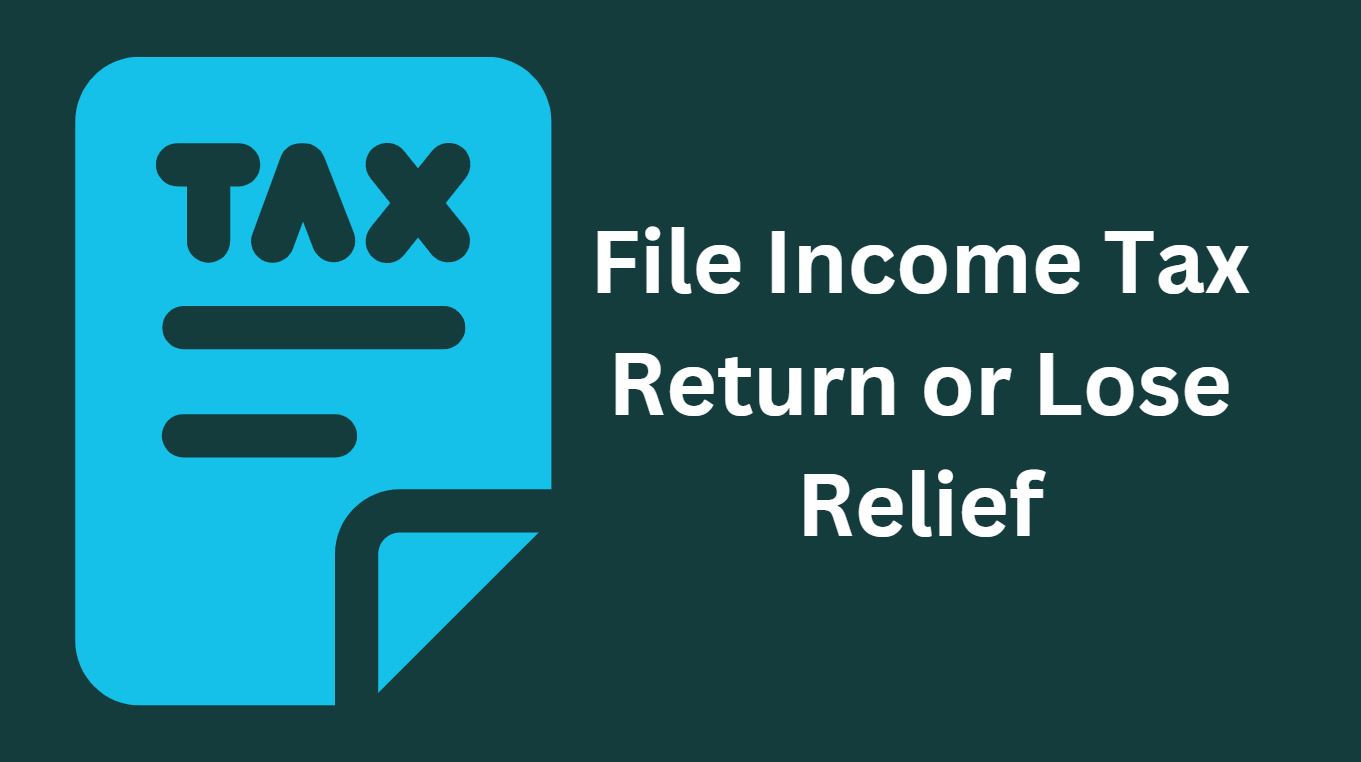- Likes
- Followers
- Followers
- Followers
- Subscribers
- Followers
- Members
- Followers
- Members
- Subscribers
- Subscribers
- Posts
- Comments
- Members
- Subscribe
File Income Tax Return or Lose Relief

Income tax is a tax that governments levy on the financial income generated by the different establishments in their jurisdiction. The funds thus obtained are used to finance its various functions. There are two types of taxes-Direct and Indirect. Income tax is a direct tax and other taxes like VAT, Service tax, Goods and Service tax are indirect taxes.
Taxes provide financial stability that is helpful in even distribution of wealth among the people of the country. Taxes play an important part in withstanding the upheavals of the economic cycles. The guidelines for the payment of income tax are based on the guidelines of the Income Tax Act.
As per this act, income from these sources can be taxed-
- Salaries
- Capital gains
- Income from house/property
- Profits from profession or business
- Income from other sources
Sum of income from all these sources is estimated as per the Income Tax Act. The tax rates are based on the earnings of a person and are termed as Income Tax Slabs. The Income Tax rates are revised every year during the budget.
Income tax is calculated yearly. Financial year begins on the 1st of April in a given year and ends on the 31st March the following year. Tax is imposed on the income earned in the previous year which is called as Assessment year.
The income tax deadlines for the financial years are-
- 31st July- The last date of filing returns for non-audit cases
- 30th September –The last date of filing returns for audit cases.
Filing of Income Tax for Salaried Persons
People earning income can file the income tax returns as per Form 16. The details of income are mentioned in Form 16 issued by their employers.
Income Tax Returns (ITR)
Posts You May Like
Tax Returns are a statement of earnings from different sources of income and these include tax liability, details of tax paid and other refunds that they should get from the government.
Late Filing of Income Tax Return
Income Tax Returns should be filed before the deadline to avoid the penalty for non-filing of tax returns.
The clause ‘losing relief in case return not filed within due date’, was apparently not completely and clearly understood by the people and they concluded that complete Chapter VI A deduction is covered. The general public seems to have understood that deduction u/s 80C (payment of School Fee/LIC/PPF), 80G (Donations), 80D Mediclaim, 80TTB & 80TTA (interest from the bank) will no longer be allowed if the filing of the Income Tax Return is done after the due date. This is not true as only Part C of Chapter VIA is included in the budget proposal.
There are chances of loss of relief in case of some incomes mentioned in Part C and this is when the ITR is filed after the due date. The relief permitted under the other four parts will remain undisturbed by the proposed amendment. The Chapter VIA of the Income Tax Act 1961 covers the “Deductions to be made in Computation of Total Income”.
There are five parts to this chapter.
-
- Part A is General and covers Sections 80A, 80 AB, 80AC, and 80B.
- Part B covers deductions in respect of some payments (containing Sections 80C to 80GGC)
- Part C includes deductions in respect of some incomes (this includes Sections 80H to 80TT)
- Part CA covers deductions with respect to other incomes (covering Sections 80TTA and projected 80TTB)
- Part D includes other deductions (covering Sections 80U).
Payments of Life Insurance Premiums, investing in school fee, provident fund, health insurance, medical treatment, preventive health check-up, interest for loans taken for house property/education, charity given to some institutions, rent paid, and political parties etc. are included in Part B of Chapter VIA and will remain unaffected by the proposed amendment. This amendment will not affect the deductions of Bank interest u/s 80TTA and proposed 80TTB and person with disability u/s 80U will remain unaffected by this amendment.
As per this proposed amendment, the people who are eligible to claim deductions covered in these sections only will not get deductions under Part C of Chapter VIA if their IT return is filed after the due date. This includes Section -80-IAC, Section 80-IBA, Section -80JJA, Section 80LA, Section 80P, Section 80 QQB, Section 80 RRB.
The following sections under Part C of the chapter VIA have been in force under section 80A I case of filing IT Return after the due date. These are Section 80IA, Section -80-IAB, Section 80-IB, Section -80-IC, Section-80-ID, and Section-80-IE.
A study of Part C shows that even though this part had 41 sections only 14 are applicable in the present context. Thus the general public should not feel anxious about losing the deductions available to them under Part B, CA and D even if they file the Income Tax Returns after the due date but prior to the relevant Assessment year or before completion of the assessment whichever takes place earlier.
Image credit- Canva


Comments are closed.